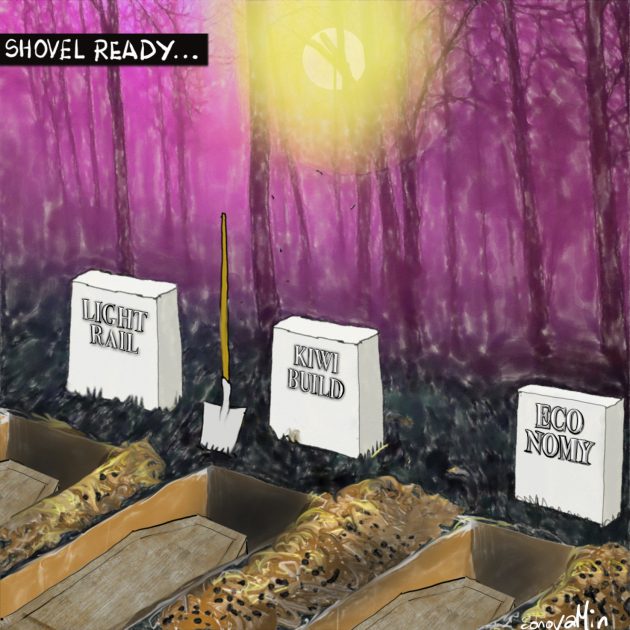Among other things, the discussion between Adrian Orr and Grant Robertson about ways to cool the overheated housing market has included a possible extension of the Bright Line Test, currently at five years. Just to remind you, the Bright Line Test applies to any profit made on the sale of a property that is not a primary place of residence for the owner, if the property is sold within five years. It applies to holiday homes, rental properties, sections and the like. It is very far reaching, and IRD does follow up on the sales of property that appear to fall into this timeline.
So let us just examine in detail what the extension of the Bright Line Test might mean, and how it is unlikely to do anything to cool the housing market, certainly in the short term.
The Bright Line Test was introduced by the previous National government, in an attempt to cool the Auckland housing market and applied initially only to properties bought and sold within two years. From 29 March 2018, the Labour-led government increased the period to 5 years.
Extending the Bright Line Test, say to 10 years, will not bring those properties bought since March 2018 into the longer Bright Line Test period. It is a fundamental principle of our taxation system that tax legislation is never applied retrospectively. So, if the extended term is introduced, effective from (say) 1st January 2021, it will only apply to properties bought after that date. All properties bought prior to that date will have either the 2 year period or 5 year period applied to them.
So, as you can see, it will be more than 5 years before an extended Bright Line Test will have an effect on the housing market. Somehow, while they may go ahead and do it, this doesn’t look like the magic pill that will solve all our housing woes, does it?
The ACT Party is calling this ‘Capital Gains Tax by stealth’, but technically, the Bright Line Test is already that. Because it only applies to non owner-occupied housing, its reach is limited. It definitely does make some revenue for the government, but it could make much more. A full CGT, including a tax on the profits on businesses, equities and collectibles would be much broader reaching, and ostensibly much fairer. This is just another way to beat landlords with a big stick, but there is nothing to suggest it will be particularly effective. So long as you know what the tax consequences are likely to be, you can factor them into your buying and selling programmes. Yes, it may gain a bit of government revenue, but it seems like nothing more than paying lip service to landlord bashers to me.
The only way to solve the housing crisis is to build more houses. The government could use its considerable political capital to put pressure on councils to release land, cut red tape, reduce consent costs and adopt a ‘cookie cutter’ approach, where large developments of similar houses can be built all at once, and encourage more training for construction workers. All this tinkering around the edges does nothing. Many people really do believe that a CGT will solve the housing crisis overnight, but it won’t. All a landlord has to do to avoid CGT is to hold onto his houses. Exactly how that helps with the housing crisis is beyond me.
Nevertheless, by writing a letter to Adrian Orr, Robertson has shifted some of the blame for the crisis away from the government and onto the Reserve Bank. Neither has full control over the housing market. The Reserve Bank lends money to banks. The government can tinker with the tax system. Neither is a solution to a crippling crisis that the government took upon itself to solve in 2017… but failed miserably and is now looking elsewhere for someone to blame.
Let’s be honest though. Shifting blame is something this government has been very successful at doing. Actually solving problems… well, that is another matter entirely.

The BFD. Cartoon credit SonovaMin
Please share this article with others so they can discover The BFD

